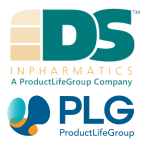In this interview, News Med talks to Joseph P. Ivan about the Comprehensive Assessment and Management Approach to Optimizing Pharmaceutical Supply Chains.
How do you optimize supply chain strategies while navigating the complexities of international regulation guidelines?
Navigating international regulations involves various strategies. Consolidating supplies into a single global source is ideal, yet often impractical due to numerous factors, such as differing timelines necessitating strategic adjustments.
A specific approach might involve prioritizing locations like Georgia for early implementation, with plans for subsequent inclusion in resupplies.
Regulatory filings, such as IMPD, require attention to detail, varying by country within Europe and extending to regions like Latin America and Asia Pacific.
Each country's acceptance of stability data -- for instance, Georgia's 12-month and Bosnia's 18-month periods -- demands careful consideration. Managing this complexity across numerous countries involves meticulous organization, typically using tools like Excel to track country-specific regulations, product details, expiry dates, IMPD versions, and any other relevant supply chain specifics. This process is labor-intensive.
Could you describe a strategy you have employed to harmonize supply chain processes internationally in addition to the Excel files?
To carry out processes in countries like Georgia and Bosnia, one might initiate with individualized panels, even as plans include a broader range of European nations and those within its vicinity, considering the Quality Person (QP) aspect.
The strategy involves beginning with simpler countries using these panels, progressing to a comprehensive guidebook encompassing all targeted nations, and ensuring alignment with various health regulatory filings. This approach requires careful regulatory considerations.
Subsequently, joining supplies into a unified global inventory results in a single, possibly extensive guidebook, potentially spanning 100 pages, detailing each country's specific requirements. However, this method may not be universally acceptable due to certain nations' unique formulations or expiry date regulations. In such instances, a tailored approach is necessary.
India, for example, necessitates specific manufacturer and manufacturing date details on labels, a requirement not universally shared across Europe. Therefore, maintaining India on an individual panel basis is sensible to avoid presenting unnecessary information to countries with differing regulations, aiming for a harmonized supply strategy.
In pharmaceutical supply chains, what proactive steps have you found to be most successful in reducing risk?
The proactive answer is you need a supply chain expert asking the right questions when building your strategy. Brazil has unique requirements at the port of entry for pharmaceuticals.
For instance, after completing global supply preparations and assembling the booklet, including the expiration date, it is dispatched to a depot in Brazil amidst an ongoing trial. As the trial progresses smoothly, an update to the expiration date becomes necessary. This requires sending new labels to Brazil, which World Courier can deliver to apply over the old expiration date, offering a simple solution for updates.
However, importing these labels into Brazil involves regulatory considerations, as the labels, due to their adhesive component—a chemical—must be listed on the import license, health authority filing, and pro forma invoice, attracting taxes. This requirement stems from Brazil's customs and health authorities' efforts to safeguard their population by ensuring the adhesive's legality within the country, reflecting the unique regulatory landscapes across nations. The emergence of regulations like biodegradable plastic bag mandates illustrates the complexity of adapting supply chains to environmental and health standards globally.
These details underscore the importance of early and frequent discussions, necessitating guidance from a professional or subject matter expert adept at navigating such intricacies. Without such expertise, even a highly competent Clinical Operations (ClinOps) professional with a directorial role might struggle, lacking the insight to ask appropriate questions for effective supply chain management.

Image Credits: DS InPharmatics (DSI)
Could you give an example of how risk-based management strategy improves the overall supply chain compliance?
You have a couple of steps of manufacturing. You have API, drug substance, and the drug product. There are several lengthy steps of manufacturing whereby there is a risk associated with each one. For example, the specification may fail, impurities may increase, or the capsules may not press together correctly.
From a risk-based standpoint, there are multiple tools out there. It can be something as simple as an Excel document that helps you to identify risk.
You need to be able to ask the right question and understand if there is a risk or not. If it is, you can identify it and then categorize it.
How does technological integration affect the regulatory compliance and product quality of pharmaceutical supply chains?
Consider the situation in the United States, similar to that in other nations, where various government agencies scrutinize incoming shipments. These include Customs and Border Protection, which aims to collect taxes; the Food and Drug Administration (FDA), serving as the health authority; and the United States Department of Agriculture (USDA), which ensures compliance with regulations on animal-derived products.
Depending on the nature of the product, involvement from the Environmental Protection Agency or the Nuclear Regulatory Commission may also be necessary, among others. These agencies leverage a technological platform accessible by customs brokers at entry points, allowing for the efficient coding and processing of shipments.
This platform, known as Automated Commercial Environment (ACE), enables seamless interaction between these agencies by facilitating the submission and review of tariff codes, FedEx details, FDA product codes, and USDA guideline exemptions for items containing animal parts but classified as pharmaceutical grade, thereby exempting them from certain permits.
The system's efficiency hinges on the accurate entry of these codes, which, if correctly done, allows shipments to bypass manual inspection, directly proceeding to logistics providers like FedEx or DHL for delivery. However, inaccuracies can trigger a halt in the system, necessitating inspection by a compliance officer and potentially causing delays. While random inspections are possible, accurate code submissions typically ensure expedited clearance, with officials essentially confirming the shipment's compliance without further scrutiny.
In what ways does DSI's methodology improve clinical and commercial supply chain management and overrides?
If you have a trained professional, somebody that has the right level of experience either supporting your commercial supply chain or your clinical supply chain, they are going to ask the right question of the right person.
DSI is able to bring in a professional like me. In the world of consultancy, if you are a smaller company, you cannot afford a full-time employee, nor do you need one. You go the consultant route, and you have this wealth of information at your fingertips and only pay for what you use.
From a business and cutting purchase orders standpoint, it is really easy for clients to add and subtract services as they need. Supply chain is one of those services.
Similarly, in the commercial realm, it is common for organizations to attempt reassigning a Clinical Supplies Director to oversee a commercial product launch.
While the underlying principles may appear similar, the practicalities of clinical and commercial operations differ significantly. A clinical expert without commercial experience might find themselves ill-equipped and unaware of the relevant inquiries required for a successful commercial debut.
This is where DSI steps in, offering the expertise of professionals like me, who are experienced in navigating commercial launches.
We formulate the necessary questions and facilitate connections with essential partners for acquiring state licenses or implementing supply chain security measures, which now often include the assignment of unique serial numbers to products.
Ensuring the selection of an appropriate partner for these tasks is crucial, and we show clients how to engage with these companies effectively, emphasizing the importance of asking the right questions during the contracting process.
What benefits have you seen from optimizing and assessing the end-to-end supply chain?
The biggest benefit is cost. If you have done it right the first time, you are going to save millions of dollars on your supply chain.
Optimizing your supply chain requires an initial investment of effort, time, and overhead expenses. However, this investment proves to be cost-effective in the long run, as the savings generated from optimization ultimately outweigh the initial costs.
How can ERP software help to modernize pharmaceutical supply chain operations?
Clinical Enterprise Resource Planning (ERP) are third party services available for purchase. That acronym in clinical space is IRT, which stands for Interactive Response Technology. This is software used to help with randomization.
In a blinded clinical trial, managing inventory and coordinating shipments are crucial, with specialized software handling these tasks from the outset, including dispatching supplies to depots or sites.
This system allows site personnel to easily select medications for patients with a simple click. Such management tools are particularly vital in extensive, blinded trials, where without them, the added costs and complexity offer little benefit. In contrast, for a smaller trial, the additional expense and complexity of these tools may not yield significant advantages.
For larger, double-blinded trials spanning numerous countries and involving thousands of patients, utilizing Interactive Response Technology (IRT) becomes indispensable. Without IRT, coordinating inventory across potentially hundreds of sites in multiple countries would require manual oversight, a task far more efficiently handled by software.
The commercial sector parallels this with Enterprise Resource Planning (ERP) systems, which serve a similar function by managing resources and information across the enterprise. However, for startups or small companies with a limited product range, investing in an ERP system may not be cost-effective, potentially leading to unnecessary expenditure and frustration.
Initial reliance on simpler solutions, like spreadsheets or basic financial software, can suffice until the business scales up. As the product range, geographic footprint, and operational complexity grow, the investment in an ERP system becomes justifiable despite its high cost and maintenance requirements, because it streamlines operations across multiple sites and distribution centers. Yet, it is essential to remember that an ERP’s effectiveness is directly tied to the accuracy of the data entered into it, and it is not advisable for companies with only a few products.
What are some of the difficulties in integrated cloud-based ERP solutions in the biomedical and pharmaceutical industries?
Imagine a biotech company that decides to forego an Enterprise Resource Planning (ERP) system when launching its first commercial product, viewing it as an unnecessary expense. Later, the company acquires an additional asset from another entity or develops a second product in-house. Over a few years, this pattern continues, and the company finds itself with three commercial products. The challenge then becomes integrating the extensive data accumulated from these products over six or seven years into an ERP system, necessitating a significant data management project.
Following the integration, the focus shifts to the resources required for system maintenance. With the ERP system being cloud-based, the company benefits from reduced risk; even in the event of physical disasters like fires or tornadoes, the data remains secure on remote servers with backup systems in place, ensuring data preservation.
However, the utility of the ERP centers on the quality and accuracy of the data entered. Integrations with other systems, such as Interactive Response Technology (IRT) or external commercial vendors like McKesson or its subcontractors, introduce additional complexities. Ensuring seamless communication between different ERP systems presents a logistical challenge, emphasizing the importance of effective data flow management both into and out of the system.
How can specialized ERP solutions for the pharmaceutical industries help with supply chain optimization and cost reduction?
Some of the IRTs have optimizers built in. Some of them work really well. Again, you have to have an intimate working knowledge of how that software works.
Some of the other IRTs are a little bit more simple, where you can put a buffer stock in there. You can define it, and that will help optimize your supplies so you are not getting orders for one unit triggered. You wait for orders of 50 units to be triggered, and you save on your shipping costs in that regard. Every time a shipment comes, somebody has to receive it, take it out of the box, look at what it is, go over to that online solution, say that they received it.
If they are doing that every single day for one unit, or if they only do it once every 50 days, it is quicker and easier. You are saving money from a bandwidth perspective. Again, it is a value prop question. You have to balance that with how much you have spent on your IRT or your ERP, versus how much bandwidth and shipping costs that you may or may not incur. From an optimization standpoint, again, you go to Excel. Excel is a fantastic program. If you do not want to spend a lot of money, you have something in there called optimize.
You really need to have a subject matter expert programming or building that. They might have tools that they have used in the past that they can tweak to make it work for that scenario.
About Joseph P. Ivan 
Mr. Ivan has over 20 years of experience in the pharmaceutical industry, 8 years in manufacturing and 12 years in supply chain. He has designed, implemented, and managed both clinical and commercial supply organizations for various sized companies.
Joe’s experience includes protocol development and review, forecasting, label management, inventory management, IRT management, ancillary supply management and global logistics management for all clinical phases, protocol types (blinded, open) and world regions. His specialties include North America, Asia Pacific, the European Union, Eastern Europe, and Latin America. In particular, he is a subject matter expert for importing clinical drug into China. He has authored and managed site and subject facing materials such as Pharmacy Manuals and Dose Card instructions. He is International Trade Compliance Certified (ITCC) for Import/Export in the US.
As a leader for bioanalytical laboratory testing, his experience includes assay development, validation and execution for clinical laboratory operations supporting clinical operations.
Our Supply Chain Services team has experience that spreads across branded and generic pharmaceuticals with a focus on contract manufacturing organizations (CMOs) while it also includes scheduling, logistics, forecasting, API and excipient sourcing, comparator sourcing and contract packaging and labeling organizations.
About DS InPharmatics 
DS InPharmatics (DSI) provides regulatory, technical, and project management consulting services to healthcare product companies that manufacture and/or market pharmaceuticals, biopharmaceuticals, and cellular and gene therapy products.
Since 2007 we have provided our clients with innovative strategies and exceptional quality work products intended to enhance product development, approval, and marketing presence. Whether advocating CMC strategy, directing CMC operations or developing CMC submission content that represent the best interests of emerging biotech, we focus on the critical CMC issues and build programs that enhance development.
In April 2021 we were thrilled to announce that DSI has just become part of ProductLife Group.
French-headquartered ProductLife Group (PLG) is well-known in the Life Sciences market. It has a track record of successfully managing global outsourcing programs and insourcing services for its international client base. The company is on a mission to help transform human health outcomes by optimizing regulatory affairs, safety & vigilance, and quality compliance for life sciences organizations worldwide.
The fit between our two organizations could not be more perfect. We will complement PLG's growing biotech services portfolio. US biotech sponsors recognize DSI as a leader in consulting for go-to-market strategies and RA pre-market consulting. At the same time, PLG has a strong reputation for managing end-to-end outsourcing of regulatory affairs and pharmacovigilance activities worldwide.
Our merger with PLG will harness our combined strengths, offering our clients on both sides of the Atlantic support with their developed drugs approvals and post-approvals compliance, plus advisory services on the best market strategies to deliver a rapid ROI on their development. Together we will offer our clients increased pharmacovigilance capabilities - including a QPPV; pharmacovigilance consulting; and a fully validated safety database - as well as complementary toxicology-related services; RIM/electronic document management services; and support for medical device regulatory requirements.
We see enormous potential in this new chapter for DSI and you, our clients. As a PLG company, we have the opportunity to become part of a global force in life sciences regulatory and compliance solutions and services, and we're incredibly excited to add our momentum to that effort.